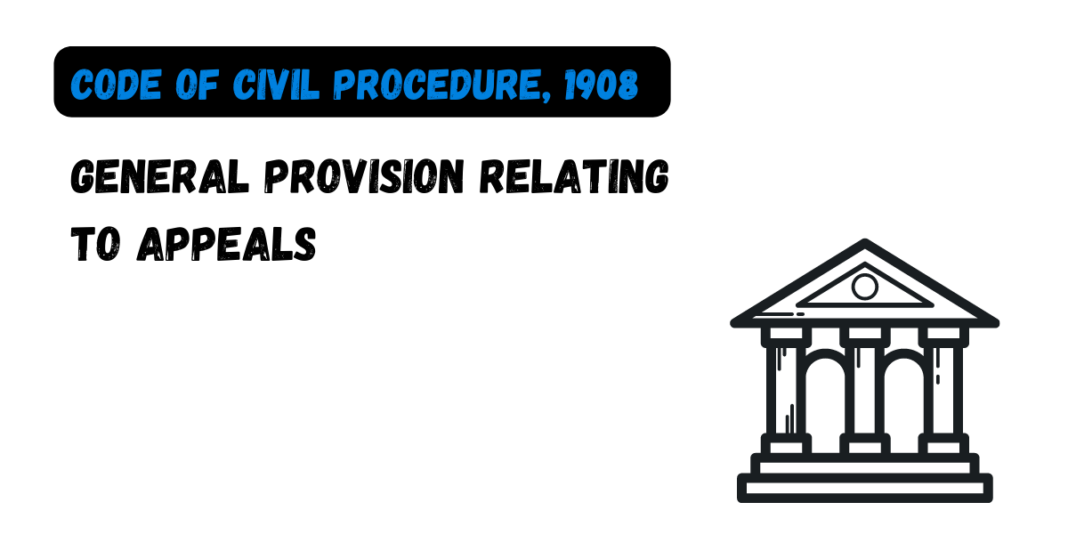The general provisions relating to appeals are outlined in the Code of Civil Procedure (CPC). These provisions establish the framework and guidelines for filing appeals in civil cases.
General Provisions related to Appeals
- Right to Appeal (Section 96 CPC): The right to appeal is a statutory right granted to aggrieved parties who are dissatisfied with a decision or decree of the court. Section 96 of the CPC provides the right to appeal to a higher court against a decree passed by a subordinate court.
- Appellate Court (Section 107 CPC): An appeal is typically filed before an appellate court, which is a higher court than the court that issued the original decree. Section 107 of the CPC specifies that every decree or order passed by a court can be appealed to the court authorized to hear appeals from the decisions of that court.
- Time Limit for Filing Appeals (Section 100 and 109 CPC): The CPC sets specific time limits within which appeals must be filed. In general, the time limit is 30 days from the date of the decree or order being appealed. However, certain exceptions and extensions may apply depending on the nature of the case or the specific provisions of the CPC.
- Limitations on Appeals (Section 102 CPC): Section 102 of the CPC places limitations on appeals by stipulating that no second appeal shall lie on any ground that was already raised and decided in a prior appeal. This provision aims to prevent repetitive or frivolous appeals on the same grounds.
- Conditions for Filing Second Appeal (Section 100 CPC): Section 100 of the CPC outlines the conditions for filing a second appeal before the High Court. It requires the existence of a substantial question of law and that the decision of the lower appellate court is not satisfactory.
- Special Leave to Appeal (Section 109 CPC): Section 109 of the CPC allows parties to seek special leave to appeal to the Supreme Court of India. The Supreme Court has the discretion to grant or refuse such leave based on the circumstances and merits of the case.
- Appeal Procedure (Order XLI CPC): The appeal procedure is governed by Order XLI of the CPC. It specifies the requirements for filing an appeal, the contents of the appeal memorandum, the service of notice to the respondent, the presentation of arguments, and the powers of the appellate court in disposing of the appeal.





